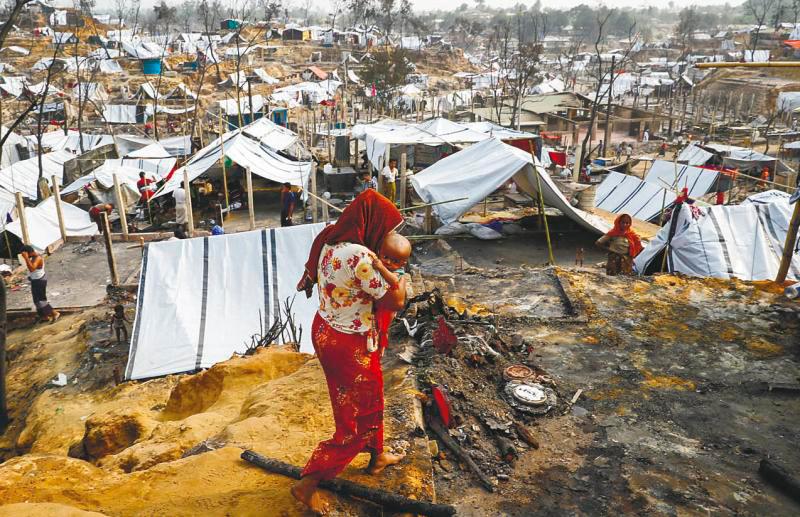OVER the past week, I have been following the heart-wrenching stories of migrants from Mexico and Venezuela embarking on perilous journeys to reach the US. The influx of thousands of migrants into New York city has placed a significant strain on the city’s resources.
Similar migration patterns have unfolded in Europe since 2015, with over one million arrivals, primarily refugees fleeing conflict in Syria, Tunisia and Libya. Tragically, nearly 30,000 people have died crossing the Mediterranean seas since 2014, as reported by the United Nations Migration Agency.
In Malaysia, we are also grappling with a refugee crisis, especially concerning the Rohingya population, who have faced oppression and been forcibly displaced from their home country, Myanmar.
We have millions of migrants working in factories and hotels, all driven by a common aspiration for a better life for themselves and their families since their countries are unable to provide a promising socioeconomic future.
These migrants are compelled to leave their home countries due to war, economic sanctions, poverty and political prosecution.
Furthermore, with the escalating climate crisis, we anticipate a growing number of refugees seeking safe havens, potentially becoming a global trend in the future.
Countries have a moral obligation to embrace lawful migration by international laws. Refugees should be given opportunities to work and provide for their families, with a gradual assimilation into society.
Such integration should not be perceived as a demographic threat as a nation’s genuine identity is defined by its capacity to extend a warm welcome and share its resources with the less fortunate.
When addressing the challenges posed by migrants and refugees, whose reasons for leaving their home countries can vary significantly, it is unfortunate to note that the discussions and decisions among Western nations often revolve around the question of whether to welcome or turn away refugees and to what extent. This tendency to concentrate on the immediate issue at hand rather than delving into the underlying causes of the crisis is regrettable.
The question that needs consideration is why migrants and refugees, who have a deep attachment to their home countries, are willing to undertake significant life risks to reach more developed nations.
Could it be attributed to the long-standing global policies and actions of affluent nations over decades?
Could it not be connected to the proxy war initiated in Syria by Western powers or the regime change in Libya, which had Western support, both of which have served as triggers for such a mass exodus of people?
Is not it true that economic sanctions wielded by countries, such as the US and Europe, against regimes they disapprove of end up causing socioeconomic hardships for ordinary citizens rather than the elites?
Although the reasons behind migrants leaving their home countries are complex, the hegemonic policies of wealthy countries have essentially set the stage for desperate migration.
Unless problems of this nature are resolved, the world will continue to see an ongoing migration crisis that will overwhelm the basic services of host countries.
Citizens should be dissuaded from emigrating so that they can cultivate their native nation based on their shared vision, culture and beliefs. Their home countries should strive for progress, leading to increased job opportunities and improved welfare conditions.
However, this can only be achieved within a fair and equitable global political and socioeconomic framework.
War and economic sanctions should not be the norm in dealing with geopolitical adversaries. Instead, the world needs moral ethics, collaboration and a mutually beneficial approach to address the various global challenges that are contributing to the migration crisis.
Migrants and refugees should prosper in their home countries, and this principle should be understood and embraced as a policy by affluent nations.
Mediating and resolving conflicts besides building human capital in these poor countries should be the way forward in addressing the root causes of migration.
Unless this principle is acknowledged, the Mediterranean Sea, leading towards Europe, and the borders of the US will continue to experience a persistent influx of migrants and refugees.
Ronald Benjamin
Secretary
Association for Welfare, Community and Dialogue









